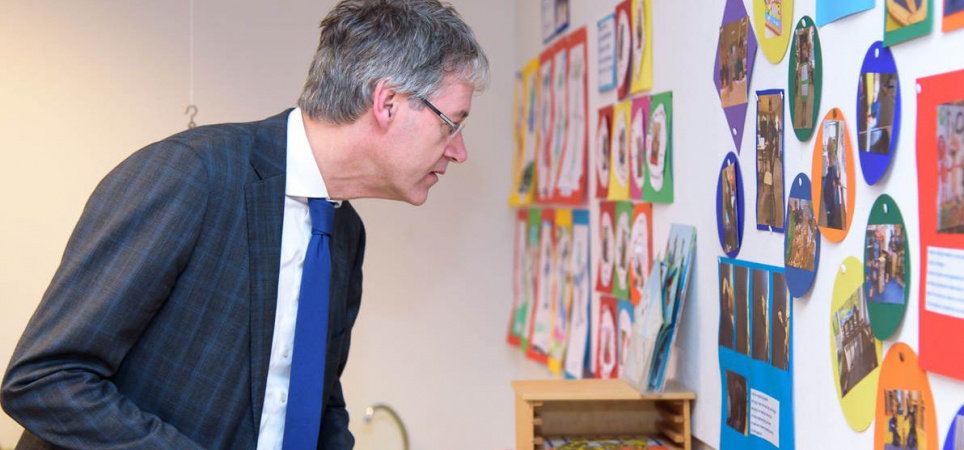Letter from Minister Slob about collective labor agreement for primary education is wrong
Basic and special education have a nice collective labor agreement, but that is insufficient to close the pay gap. AObChairman Liesbeth Verheggen: "It is sad that one day before the strike Minister Slob sends a letter about the collective labor agreement with incorrect information. Action is still needed. So whoever is on strike tomorrow: come to Rotterdam."

Picture: National government
'Look at the pay slip', writes Minister Arie Slob, two days before the strike in Zeeland and South Holland a letter to the House of Representatives. No less than 8,5 percent more wages. And another supplementary payment.
Verheggen regrets that incorrect information is being used to influence tomorrow's strike vote. "Slob already sent almost the same information to the House of Representatives in June." And there is a lot wrong with the content of the letter.
Verheggen thinks it is a pity that incorrect information is used to try to influence the mood around tomorrow's strike
Downplay
To begin with, that 8,5 percent is an average, which also includes previous allowances. "And that additional payment, people are entitled to that," says the AOb-chair. "It is clearly a way of trivializing the actions. Yes, it is a nice collective agreement, we agree, but not enough to really make working in primary education more attractive. He knows that, we know that, so I call on everyone Zeeland and South Holland once again to demonstrate in Rotterdam tomorrow, because salaries in primary and special education are lagging behind."
Also for support staff and management Verheggen believes that much still needs to be done to make working in the entire primary education sector more attractive. "Compared to our prosperity, the Netherlands spends relatively little on primary education, so late the OECD year in year We look forward to it." According to Minister Slob, the wage differences between primary and secondary education have arisen because employers and trade unions 'have made different choices in the past about terms of employment' in the two sectors. Slob is thus pushing the ball to the unions and boards.
Responsible
Wrongly, thinks AObchairman Verheggen. "For the sake of convenience, he forgets that the ministry itself used to be the employer and set the wage range. And the government is still almost 100 percent responsible for financing primary and special education. If no more money is added, it will have to come from the length or width. Or is he now suggesting that we have to make other choices, for example fire staff to finance the higher wages of the survivors. He can't mean that, can he?"


